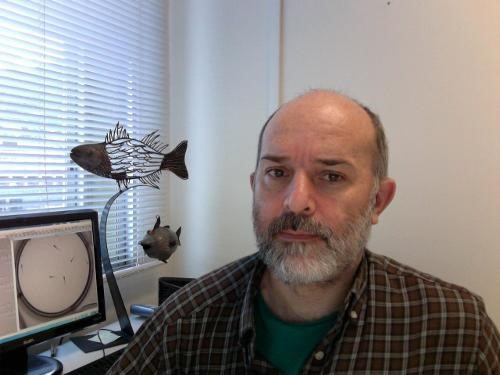Dr. Demetrio Raldúa Appointed Editor-in-Chief of Toxics

We are pleased to announce that Dr. Demetrio Raldúa has taken over the editorial leadership of Toxics (ISSN 2305-6304), starting from 26 October 2021.
Dr. Demetrio Raldúa, Ph.D., D.Sc. Vet. Med. (dr.med.vet.), from the University of Zaragoza in Spain, specializes in various aspects of vertebrate physiology and toxicology. His research focuses on identifying the effects and analysing the mechanisms of action of different environmental pollutants and drugs in vertebrates, using zebrafish as an experimental model. He is the author of 97 articles and book chapters (3361 citations, H=35), and has been a Tenured Scientist (Investigador Científico) at the Institute for Environmental Assessment and Water Research (IDAEA-CSIC) since 2009. Currently, Raldúa's laboratory work is devoted to increasing the current understanding of the molecular basis that underlies the neurotoxic effects of environmental pollutants and drugs, linking toxic effects at different levels of organization, from molecular to behavioral.
1. What appealed to you about the journal that made you want to take the role as its Editor-in-Chief?
I became interested in Toxics when I found an excellent review on the neurotransmitter systems in zebrafish (by Horzmann and Freeman, 2016) in this journal. Since then, I have been working at the journal as a reviewer, author, editor, Special Issue editor, and finally an Editor-in-Chief of the “Ecotoxicology” Section. With this background, it has been an honor to accept the position of Editor-in-Chief.
2. What is your vision for the journal?
In my opinion, Toxics is already a very interesting journal for environmental scientists and toxicologists, but we still need to work hard to reach the Q1 in both areas as soon as possible. This is an important goal, as many high-quality researchers select only Q1 journals for publications. In order to achieve this goal, editors and reviewers must work together to ensure always the high quality of the accepted manuscripts. This is, in my opinion, the best way to attract the interest of new researchers to our journal.
3. What does the future of this field of research look like?
I believe that the field of environmental sciences is currently in expansion, and is expected to draw in a lot of investment. However, I do not always think that environmental scientists and toxicologists should play a more relevant role in decision-making related to the protection of human and environmental health. In my opinion, it is very important to increase the efforts to be able to provide governments and industry with methodologies to deal with the problem of assessing the risk of mixtures of chemicals for human and environmental health, to advance in the green chemistry field, and to develop new methodologies to eliminate or reduce the exposure of humans and the environment to toxic chemicals and materials.
4. What do you think of the development of Open Access in the publishing field?
I really believe that it is always positive to make knowledge accessible to everyone. Open Access publications have a cost (APC), usually assumed by the submitting research groups or their institutions, but sometimes these charges are a real barrier for groups with funding problems. I believe that it is necessary for an agreement between governments, research institutions, and publishers to avoid this situation, providing any research group with the possibility to publish in open access.
We are confident that the strong academic background and connections of the new Editor-in-Chief will continue to raise the prestige and quality of Toxics. We also take this opportunity to express our gratitude to the previous Editor-in-Chief, Prof. Dr. Alistair Boxall, for his invaluable contributions to the journal.